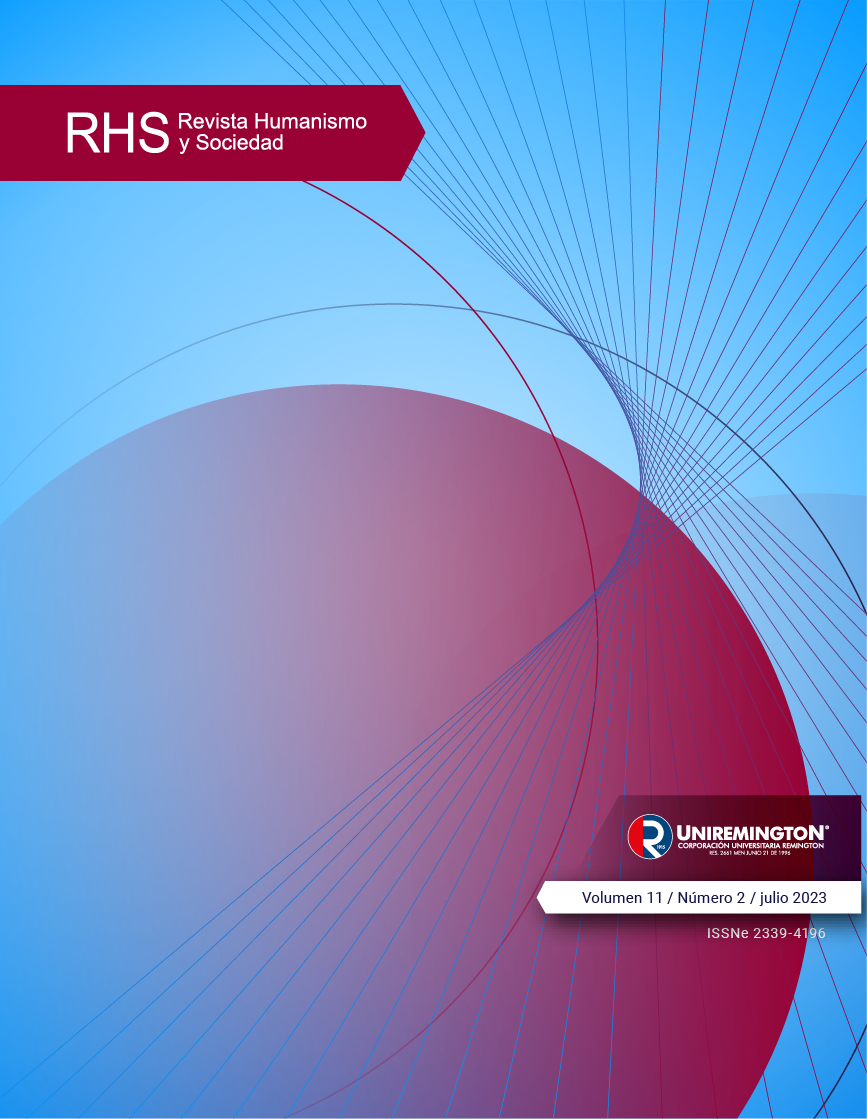Learning Guides as Teaching Strategies Mediated by ICT in Remote Education in Times of Confinement
Main Article Content
Abstract
This study reveals the problem of remote education in the Minuto de Dios Educational Institution, in the municipality of Los Córdobas, in Colombia, both for students and teachers in times of confinement. The objective is to highlight the fundamental components that needed to be included in learning guides as teaching strategies mediated by ICT for remote education, specifically for the Minuto de Dios Educational Institution in the municipality of Los Córdoba, with the aim of facilitating the development of skills and abilities of students at basic primary school during the COVID-19 pandemic. For this reason, a quantitative methodology, a descriptive analytical study, and a tool from the Learning Guide of the Ministry of Education were applied. The target population of the study were the seven teachers at the basic primary school of the educational institution already mentioned. The results highlighted the capacity that the participating teachers had to develop learning guides. Furthermore, the diversity of technological resources and the need to use educational materials that enabled the continuity of the teaching-learning process at home –a situation forced by the confinement due to the health crisis of COVID-19– are emphasized.
Downloads
Article Details

This work is licensed under a Creative Commons Attribution-NonCommercial-ShareAlike 4.0 International License.
Those authors who publish with this journal agree to the following terms:
The designated authors will retain copyright of all papers and grant the journal the right of first publication of their work, which will be simultaneously published under the Creative Commons Attribution License that allows third parties to share the work, as long as its author is attributed and this journal is identified as the original publisher.
Authors may enter into separate, additional non-exclusive licensing agreements for the distribution of the published work (e.g., post it to an institutional telematic archive or publish it in a monographic volume) as long as this journal is acknowledged as the original publisher.
References
Acosta, R. (2020). Metodologías de aprendizaje colaborativo mediado por las TIC en educación secundaria [Tesis Doctoral, Universidad de Salamanca]. https://redined.educacion.gob.es/xmlui/handle/11162/206247
Carvajal Vega, J. (abril de 2020). ¿Cómo usar Google Meet? https://pisapapeles.net/como-usar-google-meet/
Crispín, M., Doria, C., Rivera, A., Garza, T., Carillo, S., Guerrero, L., Patiño, H., Caudillo, L., Fregoso, A., Martínez, J., Esquivel, M., Loyola, M., Costopoulos, Y., & Athié J. (2011). Aprendizaje Autónomo: orientaciones para la docencia. Universidad Iberoamericana. http://biblioteca.clacso.edu.ar/Mexico/dcsypuia/20170517031227/pdf_671
Cosi, S., Voltas, N., Lázaro-Cantabrana, J., Morales, P., Calvo, M., Molina, S., & Quiroga, A. (2020). Formative assessment at university through digital technology tools. Profesorado Revista de curriculum y formación del profesorado, 24(1), 164-183. https://doi.org/10.30827/profesorado.v24i1.9314 DOI: https://doi.org/10.30827/profesorado.v24i1.9314
Cuéllar, C., Guzmán, M., Lizama, C., & Faúndez, M. (2021). Educational continuity during the pandemic: challenges to pedagogical management in segregated Chilean schools. Perspectives in Education, 39(1), 44-60. DOI: https://doi.org/10.18820/2519593X/pie.v39.i1.5
Decreto 660 de 2020 [Ministerio de Educación Nacional]. Por el cual se dictan medidas relacionadas con el calendario académico para la prestación del servicio educativo, en el marco del Estado de Emergencia Económica, Social y Ecológica. 13 de mayo de 2020.
Díaz, S. (2015). Evaluación del Programa todos a Aprender: resultados de la evaluación de contexto. Revista de estudios e investigación en sicología y educación, 10, 1-2. https://doi.org/10.17979/reipe.2015.0.10.360 DOI: https://doi.org/10.17979/reipe.2015.0.10.360
García Hernández, I., & De la Cruz Blanco, G. (2014). Las guías didácticas: recursos necesarios para el aprendizaje autónomo. Edumecentro, 6(3), 162-175. https://educrea.cl/las-guias-didacticas-recursos-necesarios-para-el-aprendizaje-autonomo/
Flores Flores, E. J., & Lima Pampa, H. E. (2021). Uso del Whatsapp en el rendimiento de la capacidad crea propuestas de valor en los estudiantes del tercer grado de educación secundaria de la institución educativa San Luis Gonzaga del distrito de Chuquibamba 2020 [Tesis de especialidad en Computación e Informática Educativa, Universidad Nacional de San Agustín de Arequipa, Perú]. http://hdl.handle.net/20.500.12773/14816
Hernández Sampieri, R., Fernández Collado, C., & Baptista Lucio, M. (2014). ¿En qué consisten los estudios de alcance descriptivo? En R. H. Sampieri, Metodología de Investigación sexta edición (pág. 634). McGraw-Hill / Interamericana Editores.
Hernández Sampieri, R., Fernández Collado, C., & Baptista Lucio, P. (2018). Metodología de la investigación. McGraw-Hill Interamericana.
Jojoa Rodríguez, D. del S., Suárez Bejarano, M. M., Ortiz Angulo, W., & Ochoa Guevara, N. E. (2022). Experiencias significativas en las instituciones educativas: San Francisco de Asís, Gualmatán y Tumac en pandemia. RHS-Revista Humanismo Y Sociedad, 10(2), e5/1 – 16. https://doi.org/10.22209/rhs.v10n2a05 DOI: https://doi.org/10.22209/rhs.v10n2a05
Mineducación. (2020). Todos a Aprender. Guías de aprendizaje autónomo en la formación remota. Anexo 7. Actividad de consolidación – Rúbrica para acompañamiento situado con docentes. MEN.
Mineducación. (2020). Guías de aprendizaje autónomo en la educación remota. MEN.
Mineducación. (2020). Circular 003 de 2020. MEN. https://www.educacionbogota.edu.co/portal_institucional/sites/default/files/inline-files/scan%202020-03-13%2009h12.pdf.pdf.pdf
Morales Urbina, E., & Puentes Puentes, Ú. (8-9 de octubre de 2019). El uso de la herramienta Zoom y el aprendizaje colaborativo en un entorno virtual. XI Congreso Internacional Tecnología de la Información, Comunicaión y Educación a Distancia. Transformación Digital de la Educación Superior. CITICED 2019. Universidad del Caribe y MESCYT.
Ramírez, C. (2017). El método analítico I Formalización Teórica (Vol. I). Editorial San Pablo.
Rieble Aubourg, S. (2020). Hablemos de política educativa América Latina y el Caribe educación más allá del covid-19. BID. http://doi.org/10.18235/0002654 DOI: https://doi.org/10.18235/0002654
Tapia García, K. A. (2021). El juego y el trastorno específico del lenguaje en estudiantes de educación inicial de una Unidad Educativa de Guayaquil, 2021 [Tesis de maestría, Universidad César Vallejo]. Repositorio de la Universidad César Vallejo. https://hdl.handle.net/20.500.12692/82882
UNESCO. (2011). Manual de gestión para directores de instituciones educativas. https://unesdoc.unesco.org/ark:/48223/pf0000219162
